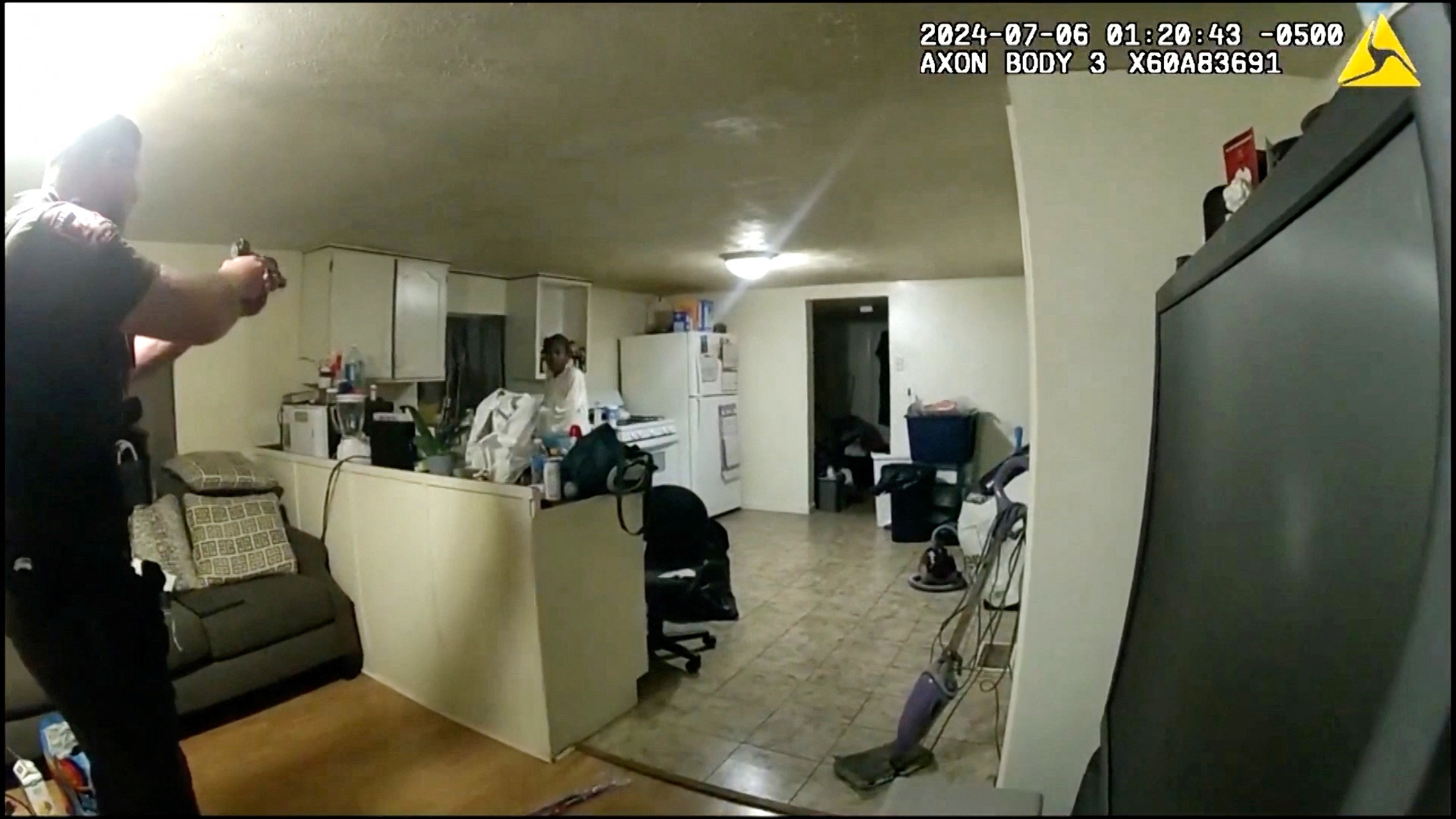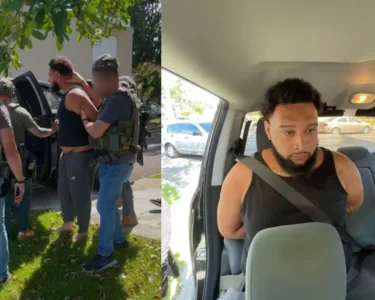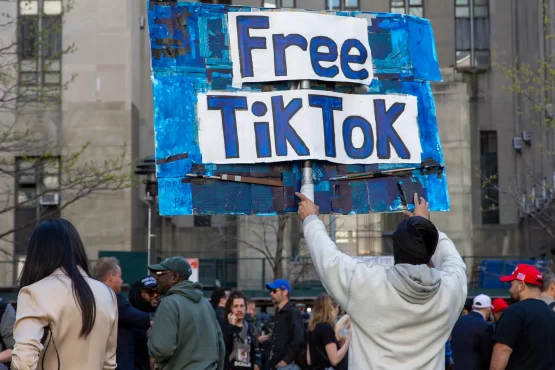The Illinois State Police released bodycam footage on Monday showing a white sheriff’s deputy fatally shooting Sonya Massey, a 36-year-old Black woman, in her Springfield home on July 6. The video has sparked national outrage and renewed calls for police reform and racial justice.
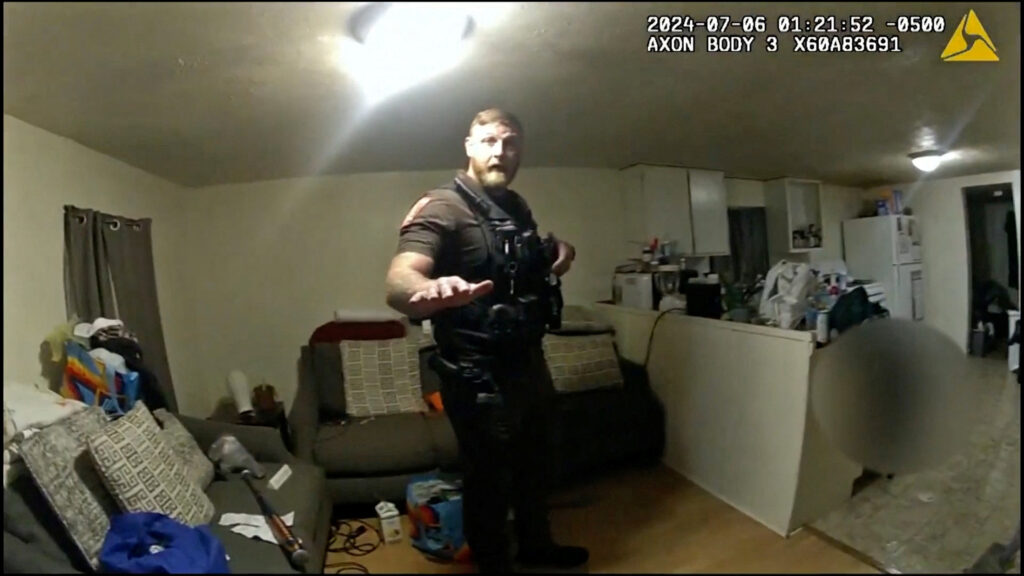
Sean Grayson, 30, a former Sangamon County Sheriff’s deputy, has been charged with three counts of first-degree murder, aggravated battery, and official misconduct. The footage shows Grayson firing three shots at Massey after a brief confrontation in her kitchen.
The incident unfolded when deputies responded to a “prowler” call at Massey’s home at 12:50 a.m. The video reveals that Massey was asked to remove a pot of boiling water from her stove. The situation escalated after Massey said, “I rebuke you in the name of Jesus,” prompting Grayson to aim his gun at her. Despite Massey making no apparent verbal threats or aggressive movements, Grayson shot her after repeatedly ordering her to drop the pot.
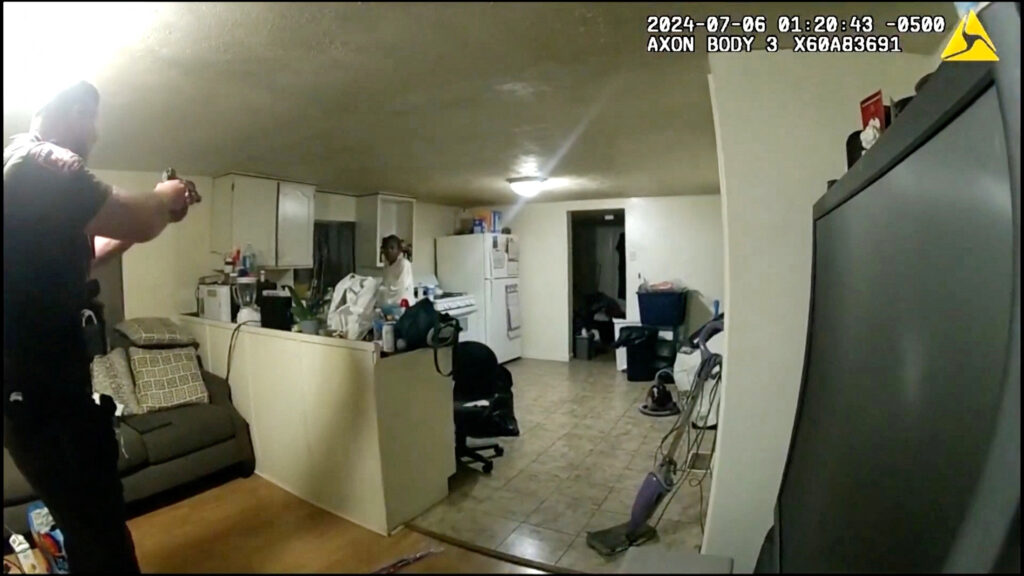
President Joe Biden issued a statement, saying, “Sonya’s death at the hands of a police officer reminds us that all too often Black Americans face fears for their safety in ways many of the rest of us do not.” He called for passage of the George Floyd Justice in Policing Act, emphasizing the need for comprehensive police reform.
Civil rights attorney Ben Crump, representing Massey’s family, called the video “shocking” and questioned the use of deadly force, given Massey’s non-threatening behavior. Crump highlighted the importance of video evidence in such cases, stating, “Just imagine if there wasn’t a video, what the narrative would have been.”

The incident has reignited debates about police use of force, racial bias in law enforcement, and the need for mental health training for officers. Grayson remains in jail with his next court date set for August 26.
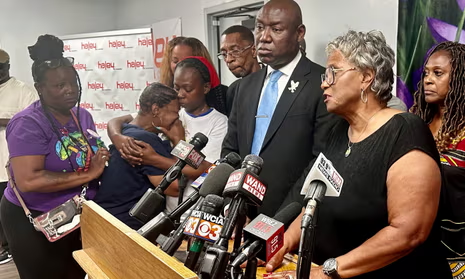
As the case unfolds, it is likely to fuel ongoing national discussions about police accountability and the treatment of Black Americans by law enforcement. The release of the bodycam footage serves as a catalyst for these conversations, putting pressure on lawmakers and law enforcement agencies to address systemic issues in policing and racial justice.

